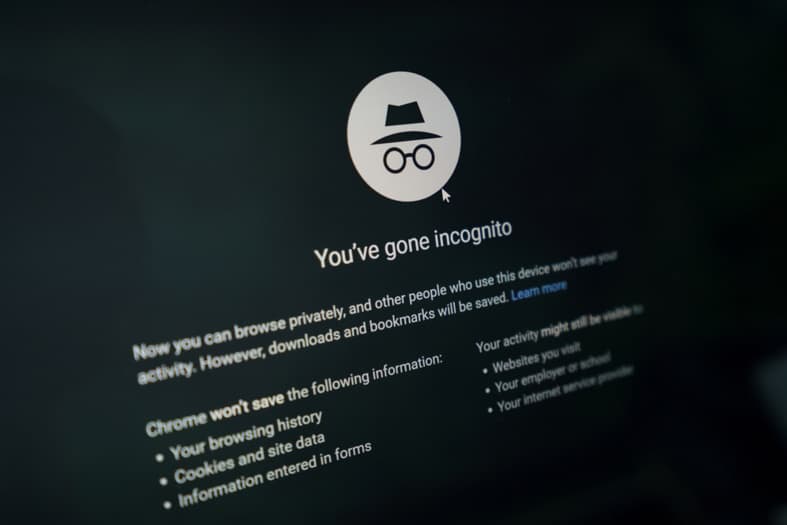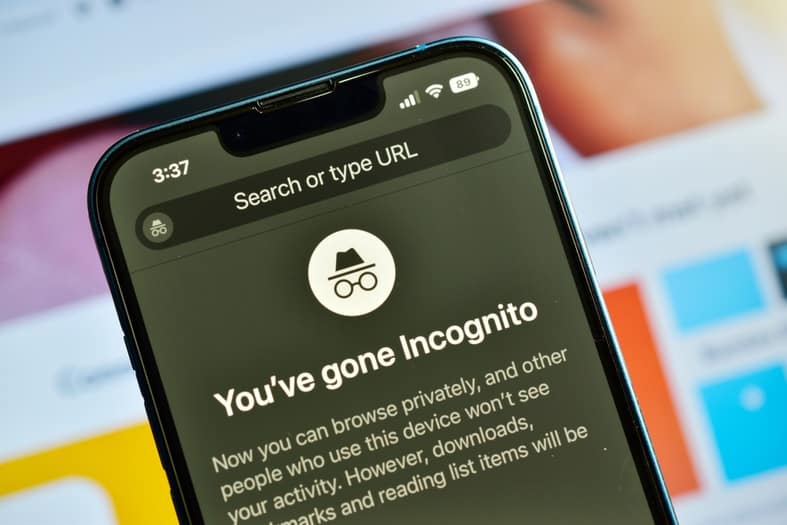Incognito is an increasingly popular feature for web browsers. It offers the promise of unobtrusive and anonymous internet usage. However, it is important to understand the extent of privacy private mode provides to use it effectively. This article will analyze the concept of incognito and private mode to discuss the level of privacy they can offer users
What Is Incognito?

Incognito browsing is a feature of web browsers that allows users to access the internet without storing their activity and data in the browser history. In the Microsoft Edge browser, it is called InPrivate Mode, Incognito in Chrome, Private browsing in Safari, and Private in Firefox. The private window is also another name for this feature. Incognito mode is designed to stop websites from tracking user activities and save cookies, meaning that when users log out of their accounts, any record of their activities will be deleted. However, it should be noted that this feature does not provide complete privacy protection since other entities such as employers, schools, and Internet Service Providers (ISPs) can still track user activity even if they are using incognito mode.
Additionally, while incognito offers some level of privacy protection by preventing search engines from saving user activities in their databases, it does not offer encryption which means that any information sent over a network connection can still be viewed by third parties with access to the connection.
Table of Contents
How To Activate
Activating a browser’s incognito or private mode offers the user increased privacy. Here is how you can do it on some of the best web browsers:
- Opening a new private window on Google Chrome can be done by clicking the three dots in the upper right corner, then selecting ‘New Incognito Window.’
- This can be accomplished on Mozilla Firefox by going to File and selecting ‘New Private Window.’
- To open an incognito tab on Safari, users should select File and choose ‘New Private Window.’
This is important:
Once users finish their browsing session, they can easily exit incognito mode by simply closing all windows and tabs. However, it is important to note that certain activities, such as downloading files, will remain visible even after exiting this mode. Therefore, for complete anonymity, while browsing online, additional measures may need to be taken beyond just activating incognito or private mode.History, Cache and Cookies
To protect one’s online privacy, it is important to understand the implications of a user’s browsing history, cache, and cookies. The design of private browsers helps users maintain their privacy online by preventing websites from tracking their activity. When Incognito is activated, this setting will not save a user’s browsing history or store any caches or cookies when they close the window. This ensures that no information about the user’s activities is stored on their computer or shared with other websites while they browse the internet in private mode.

However, it is important to note that private browsing mode does not make users completely anonymous on the internet, as certain information, such as IP addresses, can still be visible to third-party websites and search engines that track this kind of data for marketing purposes. Furthermore, there have also been reports of vulnerabilities when using some browsers in a private mode which may enable third-party access to personal data despite entering a secure environment. Thus, users must be aware of these potential risks and take extra precautions when using private modes, even if they try to maintain their anonymity online.
Is Incognito Really Private and Safe?
Despite its promise of privacy, private browsing mode may not always be an effective tool for complete online anonymity. It is important to note that when using a private browsing session, such as an incognito window or in private mode, the data stored on the computer, such as history and cookies, are not cleared after the session ends. Thus, third-party websites can still access information about previous visits.
Incognito Privacy Possibilities
A more secure option is using a browser like Tor which can offer even greater privacy than typical private browsing windows. This browser utilizes multiple layers of encryption and routing through thousands of relays worldwide to increase user anonymity. For added browsing security, you can use some of the most private VPNs, such as NordVPN or ExpressVPN. Unlike other browsers where opening a new InPrivate window does not guarantee complete privacy, Tor ensures that all your activity remains completely hidden.
Data Collection and Tracking
Data collection and tracking have become increasingly pervasive in our digital world, making maintaining privacy and anonymity online difficult. Private browsing sessions, such as the new incognito mode of web browsers, are an effective tool to prevent third-party cookies from collecting user data. However, these private browsing sessions only provide limited protection when users access the web privately. This is because the same data can still be collected by other means even after the users delete Google search history, such as device fingerprinting that identifies a user based on their device settings and characteristics like the operating system version or hardware specifications. Therefore, browser-level privacy measures alone may not be enough to ensure full privacy and anonymity for users while navigating the internet.

Search Engines and Privacy
When searching online, many users are unaware that the search engine collects their data. This data can be used for targeted advertising and other purposes. Popular web browsers such as Microsoft Edge, Internet Explorer, Mozilla Firefox, Chrome, and Safari can offer protection regarding private browsing features. However, these browsers rely on the user to ensure they use the correct settings for maximum privacy and security. In addition, these search engines collect information even if a user is not logged in or has activated private mode; this includes IP addresses and other technical details associated with their searches. To effectively clear browser history locally, you can clear all Google activities besides just a search history.
VPNs and Encryption
A Virtual Private Network (VPN) can provide a secure way to access the Internet by encrypting data transmitted over public Wi-Fi networks. This added security measure could be combined with private mode or incognito browsing for maximum protection of sensitive data. VPNs use encryption to protect the user’s personal information and any other transmitted data. Additionally, VPNs add another layer of privacy by masking the user’s IP address and making it difficult for third parties to track their online activity. Users can use private mode or incognito browsing and a VPN to ensure that all their Web traffic remains anonymous and secure from potential hackers or snoopers.
Frequently Asked Questions
Does Incognito or Private Mode Protect My Data From Government Agencies?
Incognito may offer some degree of data protection from third-party entities but cannot guarantee full security regarding government agencies. Government agencies can still access user information, as they have the means to do so regardless of browser settings.
Can You Be Tracked While Using Incognito or Private Mode?
Users are generally protected from being tracked by certain websites when using incognito or private mode. However, it is important to note that this protection is not absolute, and users may still be vulnerable to tracking depending on the circumstances. For example, third-party trackers can still follow users’ browsing activity if they use the same IP address for multiple sessions. Additionally, some web browsers have been found to include tracking features even in their incognito or private mode.
How Can You Ensure Your Data Is Not Collected Using Incognito or Private Mode?
To enhance privacy while using the Incognito browser window, you can take the following steps: enable a reputable VPN service to encrypt your internet connection, utilize privacy-focused browser extensions that block tracking scripts and ads, and exercise caution by avoiding sharing personal information or visiting suspicious websites, as they may still collect data even in private browsing modes. Remember, while these measures can enhance privacy, they do not provide complete anonymity or protection from all data collection forms.
Can Anyone See Incognito?
No, other users of the same device cannot see your browsing activity in Incognito mode. However, it’s important to note that while your local browsing data is not stored, your internet service provider (ISP), employer, or websites you visit can still track your online activities. Incognito mode does not make you completely anonymous or invisible online.
Conclusion
Incognito private browsing window is becoming increasingly popular to protect online privacy. However, it is important to understand the limitations regarding what is being protected. While history, cache, and cookies can be eliminated using the private mode, search engines may still track user data. Additionally, public Wi-Fi networks pose a risk when using Incognito or private mode unless a secure VPN connection is established. Nonetheless, with new regulations and laws regarding data protection, users will have more control over their personal information in the coming years. It is up to individuals to stay informed about technology developments and utilize these tools responsibly to ensure their privacy remains online.

